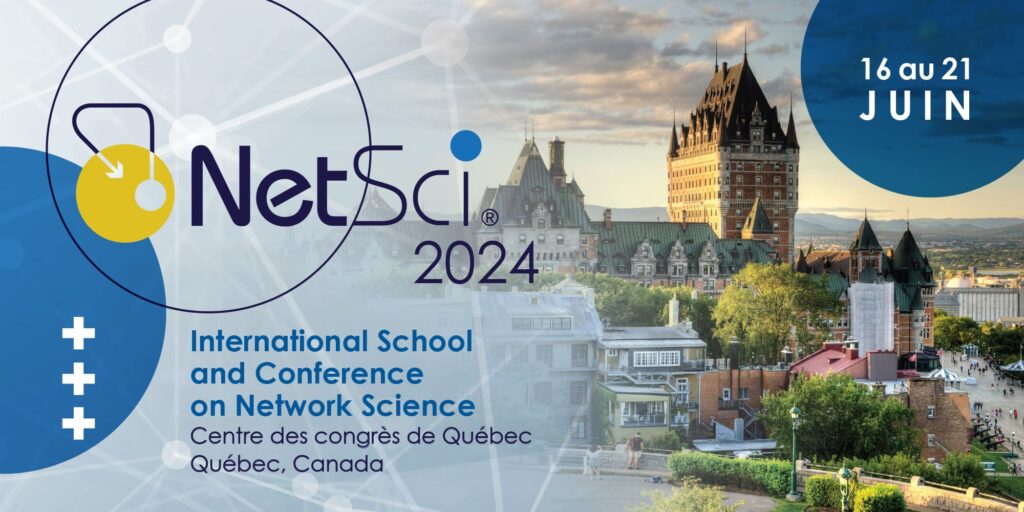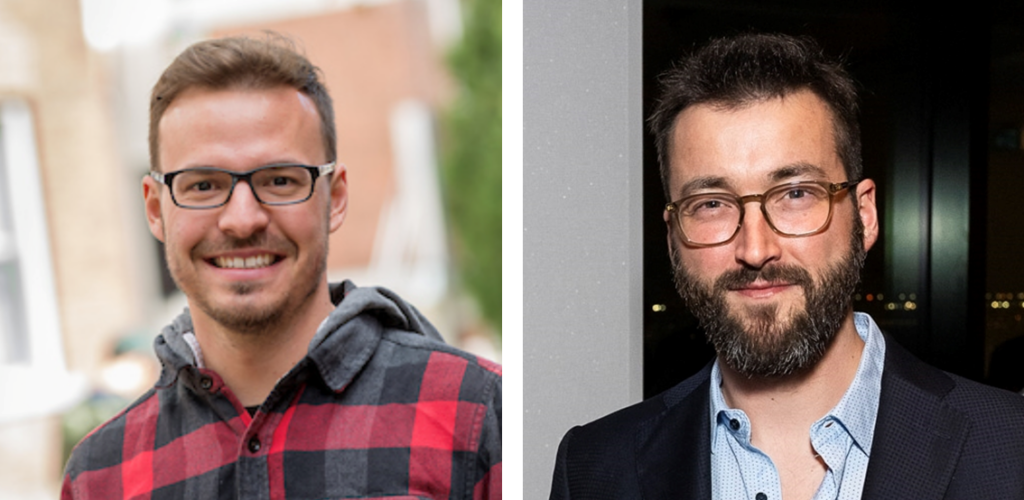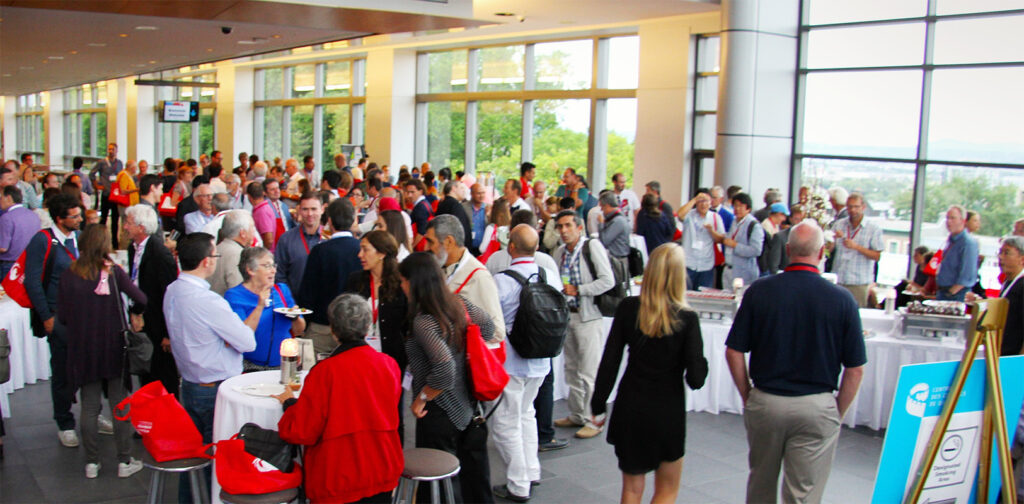Understanding Network Science
Network science is an emerging academic field that studies the links and interconnections between things, rather than the things themselves. It is applied in physics, computer science, biology, social sciences, economics, and more.
Bringing together half a thousand scientists and researchers from around the world, NetSci 2024 will explore how networks shape our world, including systems as diverse as social networks, epidemics, ecology, neuroscience, and artificial intelligence.


Attracting an International Conference to Québec City
Two members of the Ambassadors’ Circle were instrumental in bringing NetSci 2024 to Québec City. Mr. Laurent Hébert-Dufresne and Mr. Antoine Allard, both presiding over the organizing committee, worked hard to ensure that Québec City was selected from among all the candidate cities.
This will be the first time NetSci takes place in Canada. The most recent in-person editions were previously held in Austria (Vienna, 2023) and the USA (Burlington, 2019).
Mr. Allard is an Associate Professor in the Department of Physics, Engineering Physics and Optics at Université Laval,His research combines statistical mechanics, graph theory, nonlinear dynamics, and geometry to develop mathematical models of complex networks and study the structure/function relationship specific to complex systems. His work has applications in neuroscience, epidemiology, computer science and ecology.
Mr. Hébert-Dufresne is Associate Professor of Computer Science at the University of Vermont, where he leads the Joint Lab, a collaborative research group aimed at using mathematical models and data science to tackle epidemics, climate change and misinformation. Although based in Vermont, he promotes Québec and francophone science through projects with ACFAS and international conferences often held in Québec.
NetSci 2024 is expected to generate nearly $1 million in economic benefits for the Québec City region. During the 5-day event, participants will attend lectures and hands-on workshops led by leading experts in both the theoretical and applied aspects of complex systems science, including neuroscience, ecology, artificial intelligence, sociology, and epidemiology. Several activities for students and postdoctoral researchers are also planned to help them develop their professional networks and prepare for the job market.

